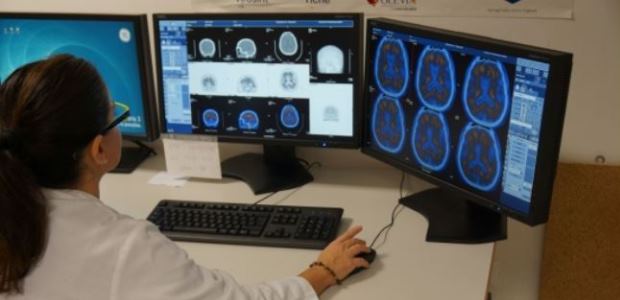
IAEA Signs Agreement to Aid Nuclear Medicine Training
Every year, more than 35 million nuclear medicine examinations are performed globally, particularly to diagnose and manage cancer, cardiovascular diseases, and neurodegenerative disorders. Countries often lack programs to train specialists and technical personnel to facilitate diagnosis and treatment, according to IAEA.
The International Atomic Energy Agency recently signed an agreement with a consortium of 11 Japanese universities and other institutions to strengthen human resources development in the field of nuclear medicine around the world. The Practical Arrangement will boost training opportunities for medical professionals in IAEA Member States in the use of imaging techniques to diagnose and manage non-communicable diseases, with a special emphasis on degenerative brain disorders, such as Alzheimer's and Parkinson's.
The Practical Arrangement, signed amid the Nov. 28-30 IAEA Ministerial Conference on Nuclear Science and Technology, will enable IAEA to increase assistance to countries in clinical practice and research, along with opportunities for certified continuous professional development in the Japanese institutions. Another focus area is the development and implementation of nuclear medicine curricula and academic programs.
"This arrangement will support IAEA projects in human health," said IAEA Deputy Director General and Head of the IAEA Department of Technical Cooperation Dazhu Yang. "It will focus on fields where Japan can offer expertise in support of our Member States."
Every year, more than 35 million nuclear medicine examinations are performed globally, particularly to diagnose and manage cancer, cardiovascular diseases, and neurodegenerative disorders. Countries often lack programs to train specialists and technical personnel to facilitate diagnosis and treatment, according to IAEA.
"Japan is proactively promoting medical care projects," said Kiyoto Tsuji, Parliamentary vice-,inister for Foreign Affairs of Japan, in his statement at the ministerial conference. "This collaboration will put nuclear science technology research and development into practical use and bring about positive socio-economic impact in a sustainable manner."
The consortium includes leading Japanese institutions in the field of nuclear medicine: the Osaka University Graduate School of Medicine, the Fujita Health University School of Medicine, the Hokkaido University Graduate School of Medicine, the International University of Health and Welfare, the Kanazawa University Graduate School of Medicine, the Kyoto University Hospital, the National Cancer Center, the National Center of Neurology and Psychiatry, the Southern Tohoku Research Institute for Neuroscience, the Tohoku University, and the Tokyo Medical and Dental University.